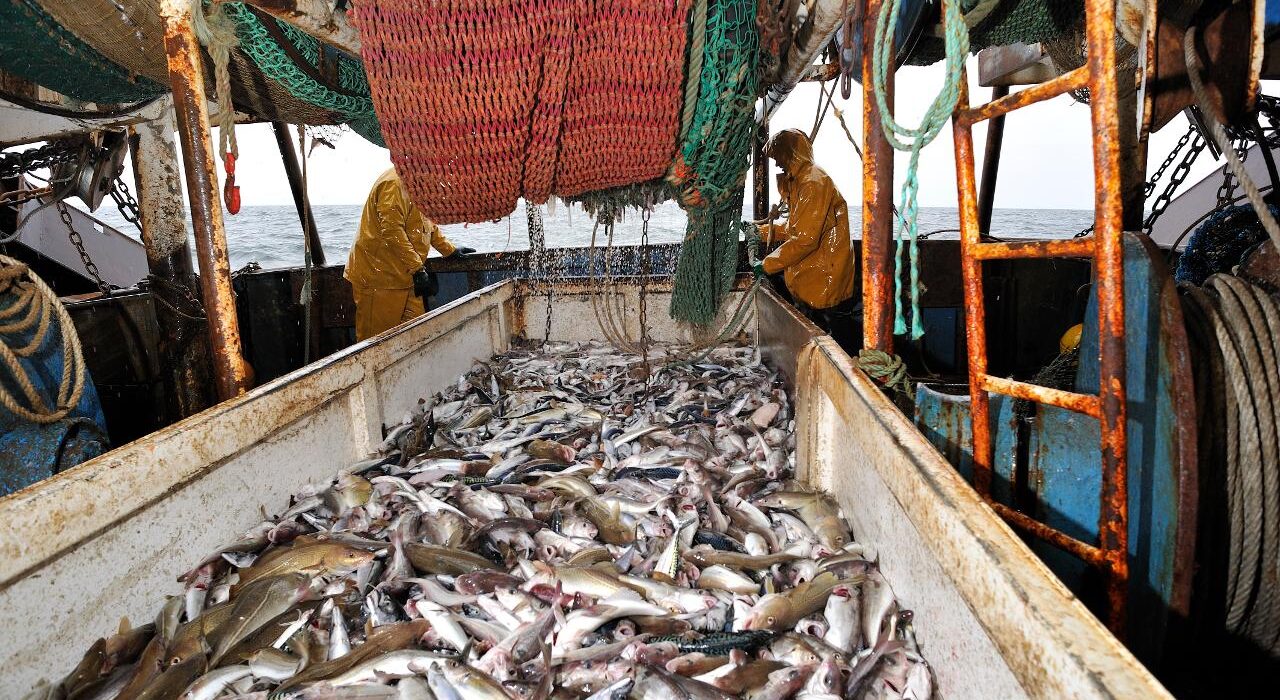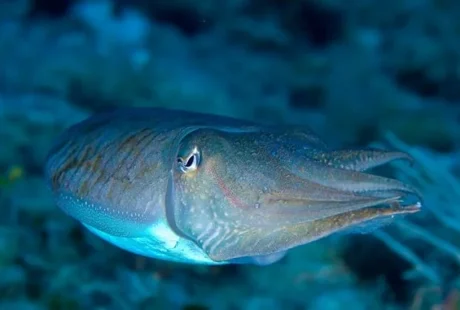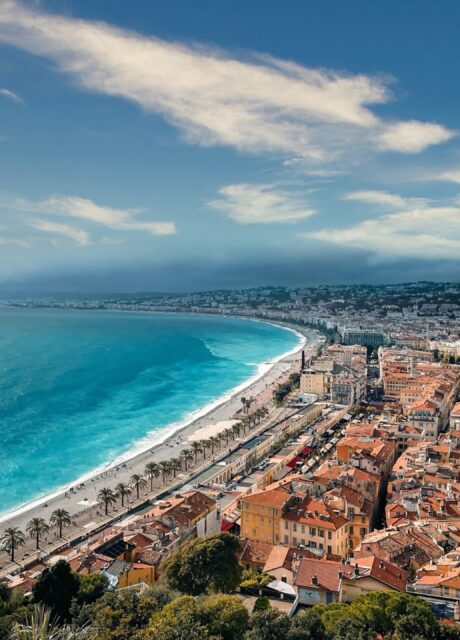As the United Nations ocean conference prepares to open its doors, EU leaders are facing a new legal complaint over widespread destructive fishing in Marine Protected Areas (MPAs). Lawyers say continuing to permit this activity goes against the bloc’s core nature laws and puts the ocean – and people – in grave danger.
The challenge, brought by ClientEarth, Oceana, Seas at Risk and Danmarks Naturfredningsforening, is the latest in a stream of litigation from all corners of the EU over bottom trawling in protected zones – including France, Spain, the Netherlands, Italy, Sweden and Germany.
ClientEarth ocean lawyer John Condon said: “The ocean floor is home to the foundations of life in our seas, and to a perfectly formed climate rescue committee – and the EU is currently giving carte blanche to national fleets to take a wrecking ball to it day after day. This cannot be tolerated a day longer – we need urgent action at EU level to confirm that bottom trawling in these Marine Protected Areas is against EU law, and an immediate response from governments.”
The complaint comes hot on the heels of a crucial judgment from the EU’s General Court in a separate case, confirming that MPAs must be effectively safeguarded from harmful fishing practices such as bottom trawling.
This new complaint, to the European Commission itself, references persistent instances of unchallenged bottom trawling in MPAs in three countries – Denmark, the Netherlands and Spain. The challenge explains that bottom trawling in these EU Marine Protected Areas flouts the EU Habitats Directive, and calls on EU officials to iron out the issue once and for all by launching infringement action against the countries in question.
Recent research has shown that no EU country has a comprehensive plan to phase out bottom trawling in MPAs. Currently, around 60% of EU MPAs are trawled.
Tobias Troll, Marine Policy Director from Seas at Risk said: “There is barely any life left after an industrial trawler has smashed through a seabed. It’s hard to accept that this happens anywhere – and in an officially protected area, it’s beyond comprehension. Legally speaking, bottom trawling in protected areas is not legal, and if policymakers don’t live up to their obligations, we will bring them before court.”
Nicolas Fournier, Campaign Director for Marine Protection at Oceana in Europe said: “This complaint, and others like it, reveal a systemic problem across Europe and one that member states have failed to address for years now, contrary to their legal obligations under EU law. With unquestionable evidence of the damage caused by bottom trawling and several hundred thousand citizens backing a stop to it in marine protected areas, the EU Ocean Pact must, once and for all, ensure that “protected” means protected.”
A socioeconomic analysis by the New Economics Foundation found that eliminating bottom trawling in Europe’s MPAs would result in a net economic gain of €8.4 billion over two decades. In contrast, creating marine sanctuaries can lead to a dramatic spillover effect, securing catch for fishers and fighting global food insecurity.
Issac Moya, small-scale fisher and founder of Empesca’t, Catalonia, Spain, said: “As small-scale fishers, we rely on traditional, low-impact methods that respect the ocean and our culture. However, industrial and bottom trawling in marine protected areas threaten our future. To ensure the continuity of our profession, it is essential to protect and promote artisanal fishing.”
Internationally heralded new documentary Ocean with Attenborough has stunned the world with unprecedented footage of industrial trawling, and calls directly on leaders at UNOC to act on promises to protect 30% of the ocean by 2030 – in particular, by banning bottom trawling in nominally ‘protected’ areas.
Meanwhile, some countries – like Greece and Sweden – are responding to the tragedy unfolding on our sea floors by making moves to definitively ban bottom trawling in Marine Protected Areas.
In May, Patagonia together with Protect Our Catch organisations handed EU officials a petition signed by 250,000 Europeans demanding an end to bottom trawling in MPAs. Thousands of Europeans are writing directly to Fisheries and Oceans Commissioner Kadis asking the same.
Noted Marine Protected Area defender Zafer Kızılkaya, founder of the Mediterranean Conservation Society, said: “The world is waiting for leaders at UNOC to defend the ocean, and make sure protected genuinely means protected. Fishers depend on it – communities depend on it – the world depends on it.”
ENDS
Notes to editors
ClientEarth lawyers and other civil society ocean representatives will be attending a screening of David Attenborough’s ‘Ocean with Attenborough’ in Brussels this evening. To schedule interviews before or afterwards, please contact Diane Vandesmet –
Further information on bottom trawling and regulation
Oceana released a study last week, revealing 17,000 hours of bottom trawling in French MPAs, carried out by boats from France and several other European nations.
Bottom trawling creates huge societal costs in terms of ocean health and climate impacts and is also incredibly wasteful – globally, a huge proportion of what’s caught by bottom trawling is thrown back, dead. Studies suggest that has amounted to hundreds of millions of tonnes of wasted fish in the last 60 years.
The Danish government has tabled some measures to reduce bottom trawling in its Marine Protected Areas, most of which have not materialised so far.
The EU’s strategy for the ocean – the EU Ocean Pact – will be released later this week. NGOs have reacted to a leaked draft of that document, calling for concrete measures to address key issues such as bottom trawling in Marine Protected Areas.
Further information on the legal cases
Environmental Justice Foundation and other partners launched a separate legal complaint in April, pointing to systemic bottom trawling in MPAs in France, Germany and Italy.
Legal preparation of the part of the case regarding Denmark was supported by law firm Ocean Vision Legal.
A factsheet on bottom trawling and the legal cases from the last year is attached, and will be available on June 3, here.
About the organisations
ClientEarth is a non-profit organisation that uses the law to create systemic change that protects the Earth for – and with – its inhabitants. We are tackling climate change, protecting nature and stopping pollution, with partners and citizens around the globe. We hold industry and governments to account, and defend everyone’s right to a healthy world. From our offices in Europe, Asia and the USA we shape, implement and enforce the law, to build a future for our planet in which people and nature can thrive together.
Oceana is the largest international advocacy organisation dedicated solely to ocean conservation. Oceana is rebuilding abundant and biodiverse oceans by winning science-based policies in countries that control one-quarter of the world’s wild fish catch. With more than 325 victories that stop overfishing, habitat destruction, oil and plastic pollution, and the killing of threatened species like turtles, whales, and sharks, Oceana’s campaigns are delivering results. A restored ocean means that 1 billion people can enjoy a healthy seafood meal every day, forever. Together, we can save the oceans and help feed the world. Visit europe.oceana.org to learn more.
Seas At Risk is an association of environmental organisations from across Europe, working together to ensure that life in our seas and oceans is abundant, diverse, climate resilient, and not threatened by human activities. Its mission is to promote ambitious policies for marine protection at European and international level. With over 30 members representing the majority of European countries, Seas At Risk speaks for millions of citizens that care deeply about the health and well-being of seas and oceans.
The Danish Society for Nature Conservation (DN) is Denmark’s largest environmental organization, with more than 137,000 members and 1,500 dedicated volunteers. DN’s mission is deeply rooted in a vibrant, member-driven democracy, and it is the only organization in Denmark with the legal authority to initiate conservation cases and secure the country’s nature for future generations. DN has already left a visible mark on the landscape and seascape.
Posted on: 2 June 2025



